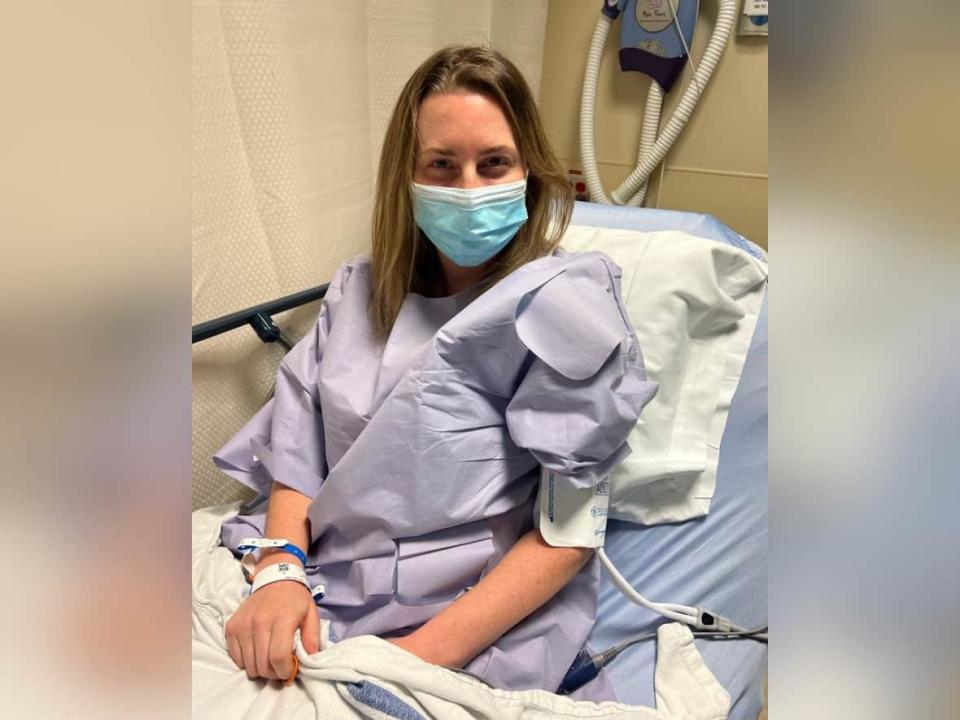B.C. woman donates kidney to a stranger in Winnipeg

As a lawyer, Carolynne Burkholder-James has written many deathbed wills for clients and their families, and feels strongly about helping someone who wants to live a longer life.
"It really hits home to me that we're on this Earth for such a short period of time," the Prince George woman said on CBC's Daybreak North.
That realization is part of what inspired her to give the gift of life to someone she might never meet.
After months of medical screening, Burkholder-James flew 700 kilometres from the north for a kidney removal surgery at Vancouver General Hospital on Dec. 1. The kidney was soon hustled onto a plane bound for a patient in Winnipeg that she doesn't know.
"It's really only a month or so out of my life to make such an impact on other people. I really felt strongly that this was some way I could give back."
Burkholder-James was one of more than 200 non-directed anonymous donors across the country participating in Canadian Blood Services's (CBS) national kidney-paired donation program. People involved with the program say these donations from strangers have an outsized impact, setting off a chain reaction of people in need of a transplant getting help.
Live donations, better outcomes
The system —also known as chained kidney donations — works by having a pool of anonymous donors and patients needing a kidney being matched up by blood types.
Data from Canadian Blood Services shows that most of the donors in the national kidney-paired donation program are directed donors, meaning the donor is a relative, spouse, friend or co-worker of the transplant patient, and the donor's blood type matches the patient's.
Transplant patients who have no matching directed donors need non-directed anonymous donors to provide kidneys.
The B.C. Transplant Society said that in 2021, 75 kidneys were donated from living donors, compared to 150 donated by those who had died. The agency says for patients waiting for a kidney, transplant outcomes are better with kidneys from a live donor.
WATCH | How do chained kidney donations work?
'It takes a certain type of person to be so altruistic'
Burkholder-James says she became interested in becoming an anonymous kidney donor after reading a New York Times article about chained organ donations a decade ago.
"At that time, I was like, 'Wow, I could do that someday,'" she said. "Then, a few years ago, I just decided to make it happen."

B.C. has Canada's second-highest number of non-directed anonymous donors — 78, compared to Ontario's 105 — according to CBS.
Vancouver General Hospital's medical director of kidney transplant, Olywn Johnston, says there are about 300 patients in B.C. waiting for kidney transplants and given the constant demand, she praises anonymous donors.
"It takes a certain type of person to be so altruistic to do something like that," Johnston said. "They go through all those hoops, and they still want to donate."
As a mother of three children, Burkholder-James says the operation to take out one of her kidneys was less painful and risky than a C-section.
"The first few days were rough, but after that, it was much better," she said.
Burkholder-James encourages people to consider becoming an anonymous kidney donor by registering online at transplant.bc.ca.


 Yahoo Movies
Yahoo Movies 